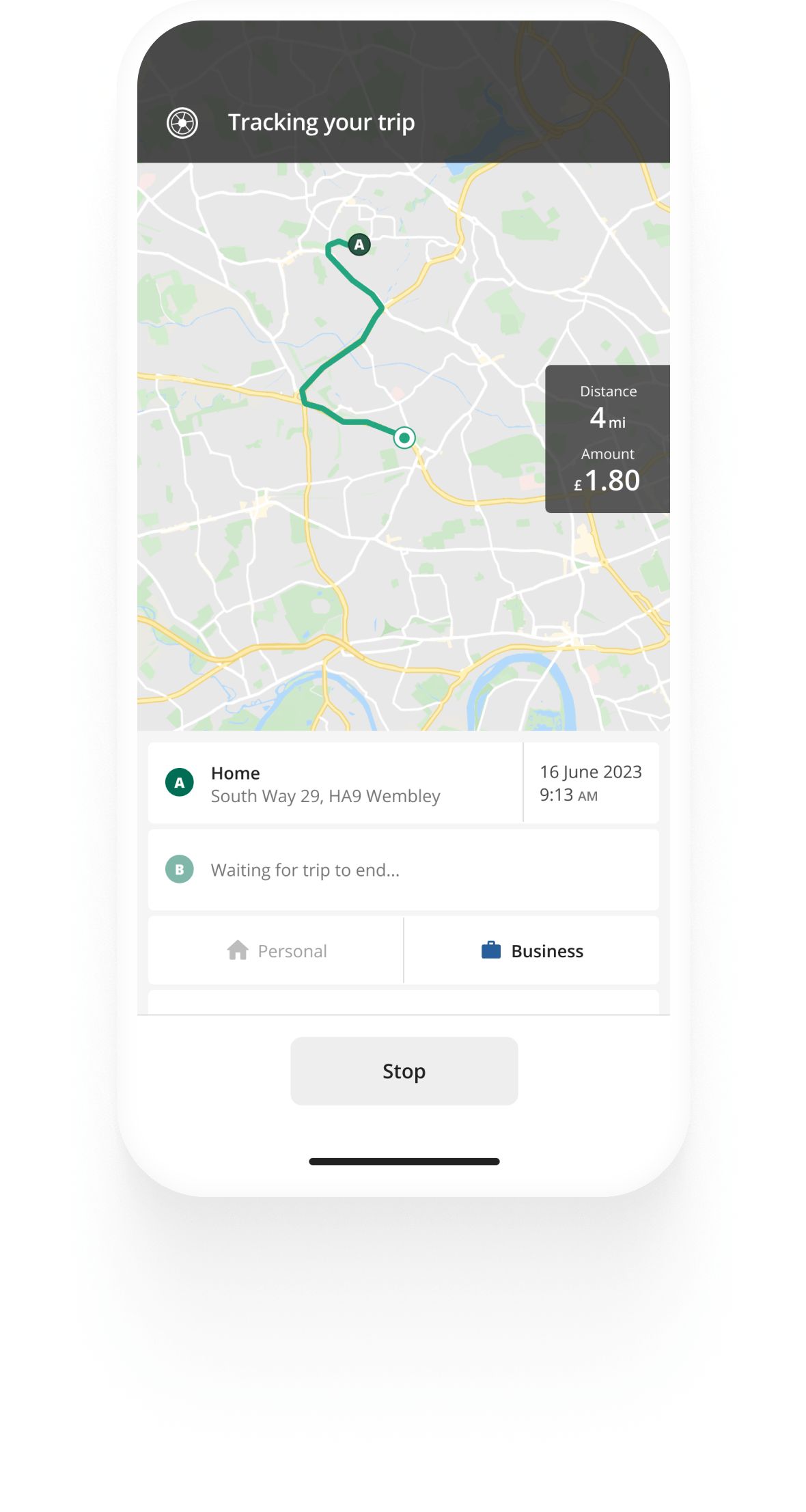Track mileage automatically
Get started
HMRC mileage rates 2025
HMRC has announced the 2025/2026 rates for the reimbursement or deduction of business miles. The rates remain unchanged from past years, at 45p for the first 10,000 miles and 25p after that for cars and vans, 24p per mile for motorcycles, and 20p per mile for bicycles.
| Vehicle type | First 10,000 miles | Over 10,000 miles |
|---|---|---|
| Cars & vans | 45p | 25p |
| Motorcycles | 24p | 24p |
| Bicycles | 20p | 20p |
The mileage allowance rates are applicable from April 6, 2025, until April 5, 2026.
HMRC keeps the mileage rates the same as last year
The 2025/2026 tax year marks the fourteenth consecutive year HMRC has kept the same mileage allowance rates.
So, while your vehicle's running and maintenance costs, such as fuel, insurance, and servicing, have sharply increased, the rates at which you can be reimbursed or deduct your mileage remain the same as in 2011.


Mileage tracking made easy
Trusted by millions of drivers
Automate your mileage log Automate your mileage log

Automatic mileage tracking and HMRC-compliant reporting.
Get started for free Get started for freeHow to apply the 2025 HMRC mileage rates
HMRC’s mileage rates are the highest tax-free reimbursement or deduction you can receive for using your private vehicle for business purposes. Here’s how you can apply the rates depending on your employment situation.
If you are an employer
While not mandatory, it is a common practice to reimburse employees who drive their private vehicles for business-related trips. The HMRC-approved rates are the highest tax-free reimbursement you can pay out to employees, although you can also choose to reimburse them at a lower or higher rate. Any mileage reimbursements you provide over HMRC’s approved rates will be taxed as a part of your employee’s income.
Additionally, you can pay out passenger payments at 5p per mile if employees carpool for business. As with mileage allowance, passenger payments are not mandatory.
Get more information about providing Mileage Allowance Payments (MAPs) and passenger payments in the UK.
If you are an employee
Your employer can give you Mileage Allowance Payments for the business miles you drive in your private vehicle. HMRC's approved rates are the highest reimbursement you can receive tax-free.
If you receive a higher reimbursement than the 2025 HMRC-approved rates, the excess will be taxed as a part of your income. However, you can claim the difference at tax time if you receive a lower reimbursement than the official HMRC allowance rates. And, if you receive no reimbursement for your business miles from your employer, you can claim the full mileage allowance as a deduction at tax time.
If you are self-employed
As a self-employed individual, you can use the 2025/2026 allowance rates to claim Mileage Allowance Relief (MAR) for all business-related travel at the end of the tax year.
Alternatively, you can calculate your deduction based on the actual costs of running and maintaining your vehicle.
Our HMRC mileage guide for the self-employed provides more information about the rules that apply to you.
Keeping track of your mileage
Regardless of your employment situation, you must keep track of your mileage and keep a detailed logbook as proof of your claims.
To ensure an HMRC-compliant log, you must record the following information for your business trips:
- The date of the trip
- The start and end addresses of your journeys, including postcodes and
- The distance you travelled.
You can use a physical or digital logbook, such as our Excel, Sheets or PDF mileage logbook template.
Alternatively, consider using an automatic mileage tracking app to record all the needed information and produce complete driving records.

Tired of logging mileage by hand?
Effortless. HMRC-compliant. Liberating.
Latest posts
- Free mileage log book template
- Mileage claim calculator for the UK
- Benefit in kind (BiK) tax on company cars
Related posts
Free mileage log book template
27 March 2025 - 2 min read
Whether you're an employee or a business owner, it's crucial to keep good mileage records in a mileage log book.
HMRC Mileage Guide
13 February 2025 - 5 min read
Welcome to our guide on mileage claims and reimbursement in the UK. This guide will walk you through the rules that apply to your situation.
Free mileage log book template
27 March 2025 - 2 min read
Whether you're an employee or a business owner, it's crucial to keep good mileage records in a mileage log book.
.svg)
